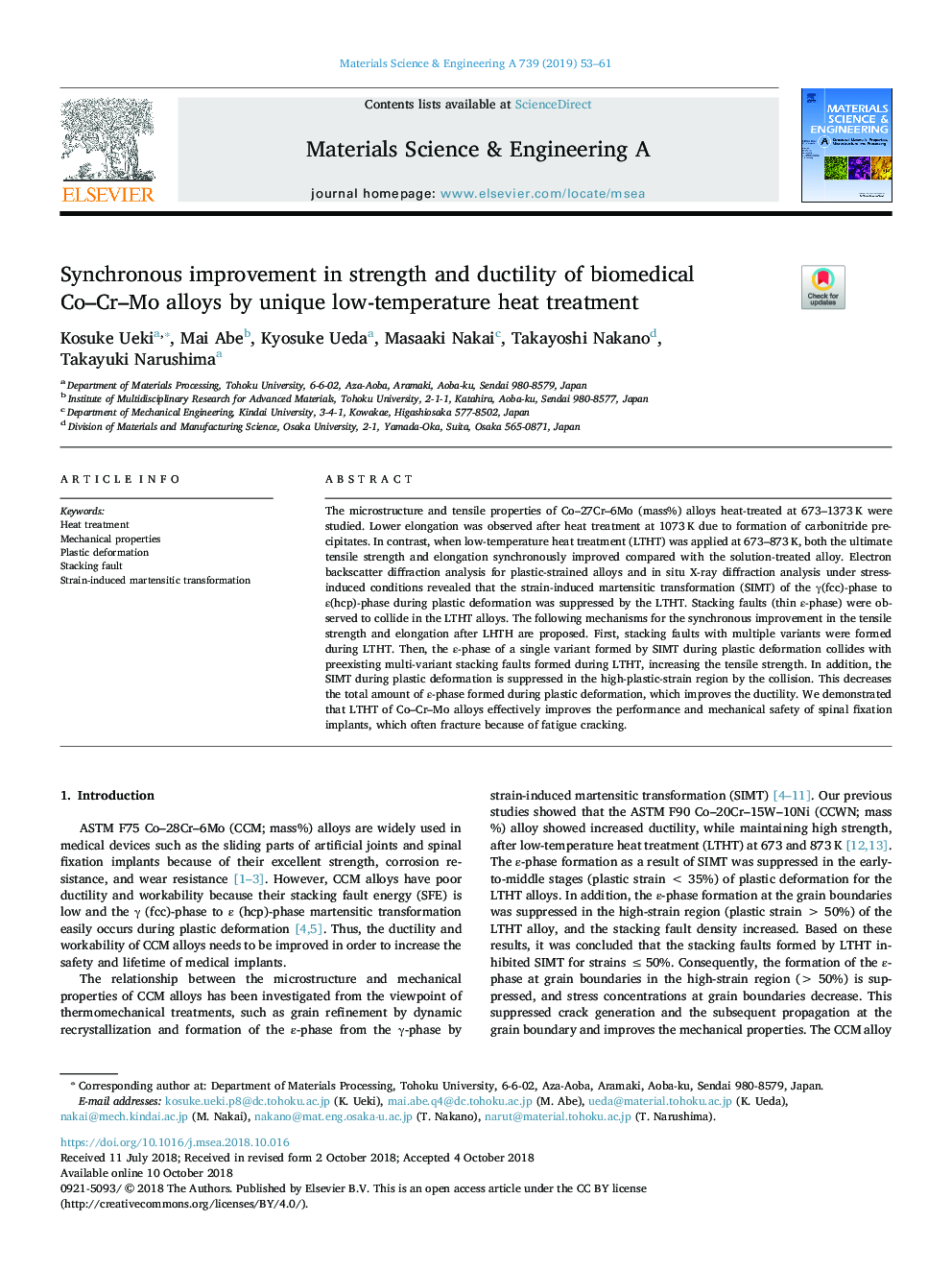| Article ID | Journal | Published Year | Pages | File Type |
|---|---|---|---|---|
| 12055114 | Materials Science and Engineering: A | 2019 | 9 Pages |
Abstract
The microstructure and tensile properties of Co-27Cr-6Mo (mass%) alloys heat-treated at 673-1373â¯K were studied. Lower elongation was observed after heat treatment at 1073â¯K due to formation of carbonitride precipitates. In contrast, when low-temperature heat treatment (LTHT) was applied at 673-873â¯K, both the ultimate tensile strength and elongation synchronously improved compared with the solution-treated alloy. Electron backscatter diffraction analysis for plastic-strained alloys and in situ X-ray diffraction analysis under stress-induced conditions revealed that the strain-induced martensitic transformation (SIMT) of the γ(fcc)-phase to ε(hcp)-phase during plastic deformation was suppressed by the LTHT. Stacking faults (thin ε-phase) were observed to collide in the LTHT alloys. The following mechanisms for the synchronous improvement in the tensile strength and elongation after LHTH are proposed. First, stacking faults with multiple variants were formed during LTHT. Then, the ε-phase of a single variant formed by SIMT during plastic deformation collides with preexisting multi-variant stacking faults formed during LTHT, increasing the tensile strength. In addition, the SIMT during plastic deformation is suppressed in the high-plastic-strain region by the collision. This decreases the total amount of ε-phase formed during plastic deformation, which improves the ductility. We demonstrated that LTHT of Co-Cr-Mo alloys effectively improves the performance and mechanical safety of spinal fixation implants, which often fracture because of fatigue cracking.
Keywords
Related Topics
Physical Sciences and Engineering
Materials Science
Materials Science (General)
Authors
Kosuke Ueki, Mai Abe, Kyosuke Ueda, Masaaki Nakai, Takayoshi Nakano, Takayuki Narushima,
